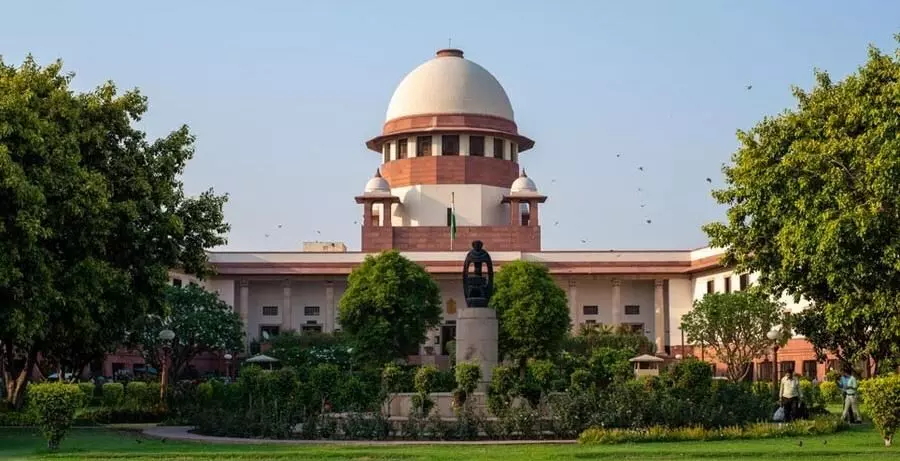
Petition challenging new criminal laws passed by Parliament filed in SC
text_fieldsNew Delhi: A petition contesting the enactment of three new laws that aim to overhaul India's penal codes has been filed in the Supreme Court arguing that they have numerous "defects and discrepancies." Three significant pieces of legislation, the Bharatiya Nyaya (Second) Sanhita, Bharatiya Nagarik Suraksha (Second) Sanhita, and the Bharatiya Sakshya (Second) Bills, were passed by the Lok Sabha on December 21. On December 25, President Droupadi Murmu signed the bills into law.
These new laws-the Bharatiya Nyaya Sanhita, the Bharatiya Nagarik Suraksha Sanhita and the Bharatiya Sakshya Act-will replace the Indian Penal Code, the Code of Criminal Procedure and the Indian Evidence Act.
While seeking a stay on the operation of the three laws, the PIL filed by advocate Vishal Tiwari said they were enacted without any parliamentary debate as most of the opposition members were under suspension.
The plea has sought directions from the court to immediately constitute an expert committee to assess the viability of the three new criminal laws.
"The new criminal laws are far more draconian and establish police state in reality and violate every provision of fundamental rights of the people of India. If the British laws were considered colonial and draconian, then the Indian laws stand now far more draconian as in British period you could keep a person in police custody for a maximum of 15 days. Extending 15 days to 90 days and more, is a shocking provision enabling police torture," the plea said.
The Bharatiya Nyaya Sanhita encompasses offences such as acts of secession, armed rebellion, subversive activities, separatist activities or endangering the sovereignty or unity in a new avatar of the sedition law.
According to the new laws, anyone purposely or knowingly, by words, either spoken or written, or by signs, or by visible representation, or by electronic communication or by use of financial means, or otherwise, excites or attempts to excite secession or armed rebellion or subversive activities, or encourages feelings of separatist activities or endangers sovereignty or unity and integrity of India or indulges in or commits any such act shall be punished with imprisonment for life or with imprisonment which may extend to seven years and shall also be liable to fine.
According to IPC Section 124A, which deals with sedition, anyone involved in the crime may be punished with life imprisonment or with a three-year jail term. Under the new laws, 'Rajdroh' has got a new term 'Deshdroh', while doing away with the reference to the British crown. Loosely explained, Rajdroh refers to rebellion or an act against the ruler, while Deshdroh represents such acts against the nation.
Also, for the first time, the word terrorism has been defined in the Bharatiya Nyaya Sanhita. It was absent in the IPC. Under the new laws, the magistrate's power to impose fines has been increased as well as the scope of declaring a proclaimed offender.
With PTI inputs























